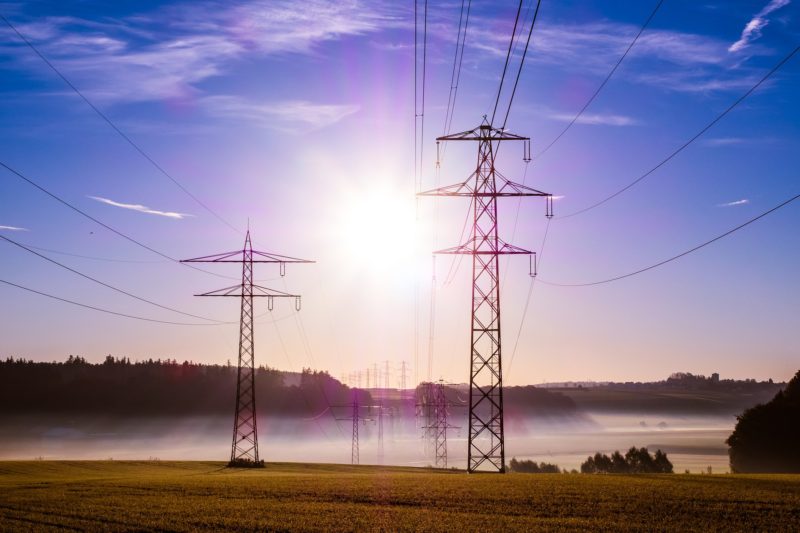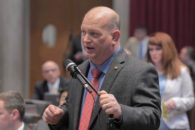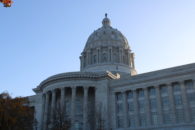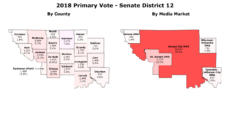Pre-filing for next session began Wednesday, with several bills on utility regulation, safety, and clean energy generation on deck to go before lawmakers in 2022.
The pre-filing process, annually set for the beginning of December, gives lawmakers a chance to set the stage for the upcoming session. With a month to go before lawmakers gavel in for the first time, here’s a look at the utility legislation they are set to consider.
Regulatory changes
Sen. Bill White, who sits on the Commerce, Consumer Protection, and the Environment Committee, filed a bill making a bevy of regulatory changes for utility providers. The bill would allow business and residential customers who receive an incremental energy load — cycling power through at peak times rather than continuously supplying power — or economic development grants on any level to be considered for a discounted electric rate. Customers would be required to apply for a discount with their utility provider and meet any additional criteria individual utilities require.
Another provision would require electric and gas companies to keep their requests for rate changes based on weather and conservation in triannual rate requests rather than seeking smaller adjustments outside of the commission’s typical cycle.
“It’s a work in progress. We want to deal with these rate cases to make them more beneficial to consumers, but not all the utilities we’ve talked to are comfortable with the language yet,” White told The Missouri Times. “We’re going to be working with them as the session progresses to make sure this is not only fair to ratepayers but also these providers.”
Sen. Jason Bean filed the Electrical Corporation Broadband Authorization Act which would allow utility companies to use their existing infrastructure to provide broadband service. Investments in broadband would be used to calculate monthly customer rates, allowing utilities to recoup their broadband investments through the state’s existing rate process. The Public Service Commission (PSC) would not have jurisdiction over any agreements between energy and broadband service providers.
Electric companies that own and operate transmission lines are required to give the PSC notice of their intention to construct further infrastructure. A company would be required to apply for a certificate of convenience and necessity (CCN) within 18 months of giving notice. Rep. Ron Hicks’ HB 1811 would allow other energy providers to apply with the commission to take over a project if the initial applicant did not pursue regulatory approval on time. Existing state statute requires a company proposing a project to enter an agreement for another provider to take over, while Hicks’ bill puts that onus on the company seeking to step in.
A bill from Rep. Michael O’Donnell would allow energy providers to defer state and local property tax expenses into regulatory asset or liability accounts. Those amounts would be used for future rate adjustments before the PSC.
Safety and privacy
Sen. Lincoln Hough’s SB 827 would close identifiable billing and usage records for municipal utility customers from the Sunshine Law unless authorized by the customer.
Rep. Mark Ellebracht filed legislation to prohibit broadband providers from blocking content and allow the PSC to waive the prohibition of paid prioritization.
Rep. Bill Kidd filed a myriad of utility bills this week, including one altering the civil penalties for violating federal natural gas safety standards. The bill would leave penalties up to the U.S. Secretary of Transportation, removing an escalating penalty scale in state statute that is set to plateau at $40,000 in 2040.
Cost recovery
Another bill from Rep. Bill Kidd would allow utility companies to recover operational costs for coal-firing plants operating at a low capacity.
Rep. John Black filed the Missouri Nuclear Clean Power Act to allow electric companies to charge fees for the construction of renewable energy facilities or clean power generation.
A look at last year
The 2021 legislative session saw several utility-related bills make it to the governor’s desk. One measure allowed gas companies to recover costs invested in natural gas programs. It also allowed electric companies to retire coal and other generation facilities and recover the costs. Another allowed electric companies to issue bonds to offset the cost of transitioning to clean generation.
Another piece required municipalities working with a clean energy development board under Missouri’s Property Assessed Clean Energy (PACE) program to notify the Division of Finance of the partnership. The bill required the division to conduct examinations of a board every two years.
The 2022 legislative session begins on Jan. 5.

Cameron Gerber studied journalism at Lincoln University. Prior to Lincoln, he earned an associate’s degree from State Fair Community College. Cameron is a native of Eldon, Missouri.
Contact Cameron at cameron@themissouritimes.com.




































